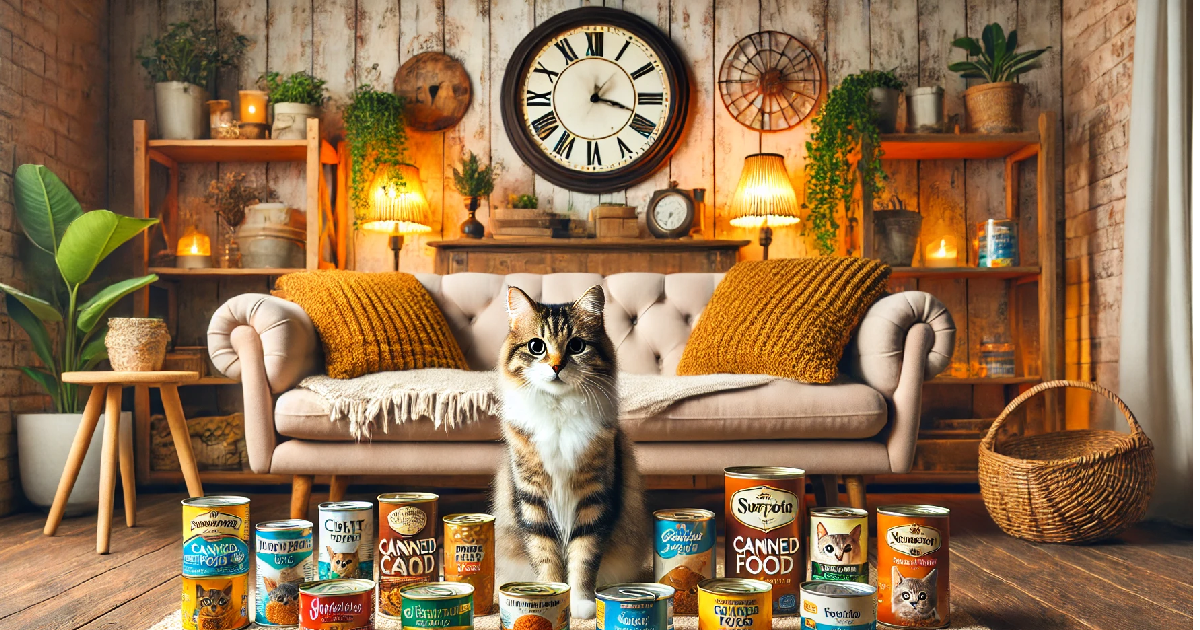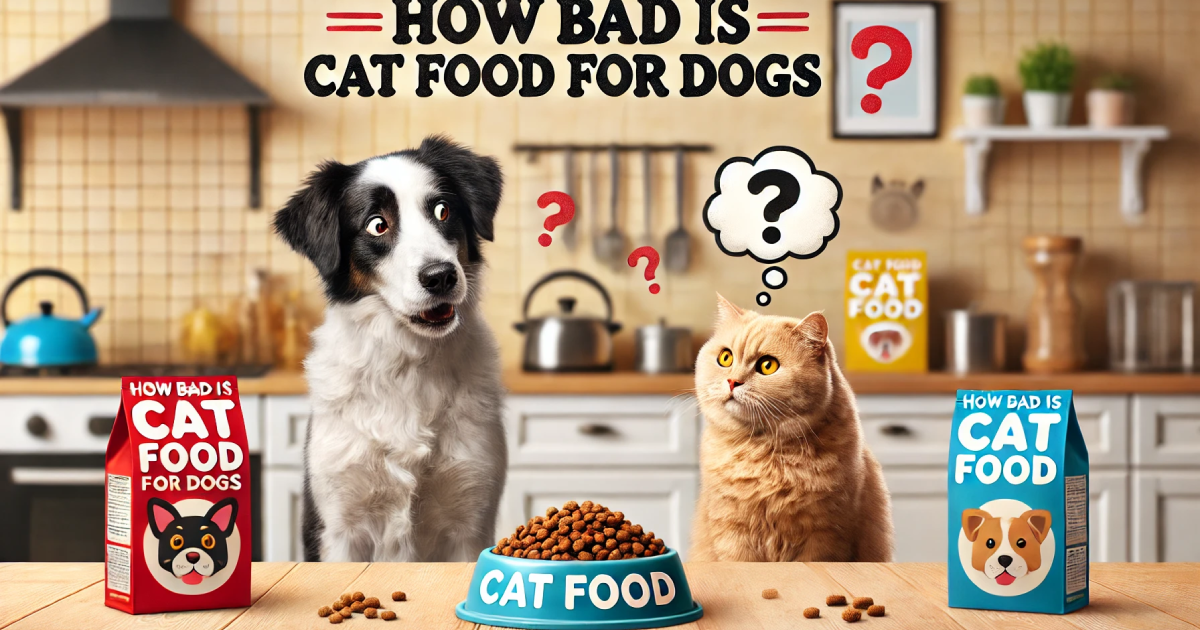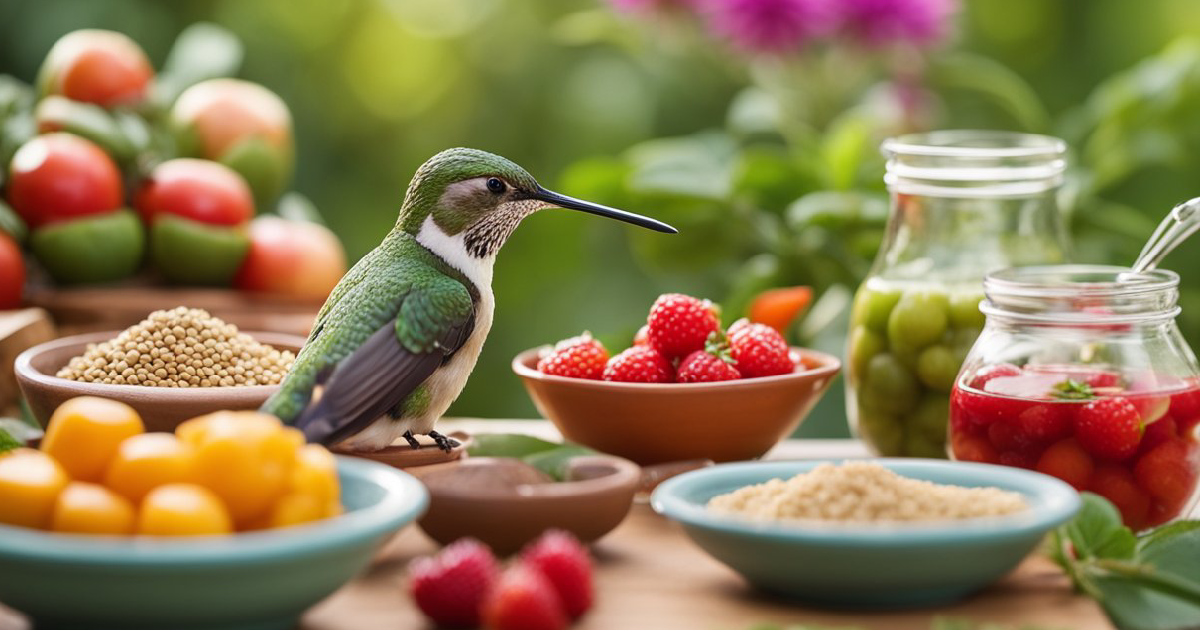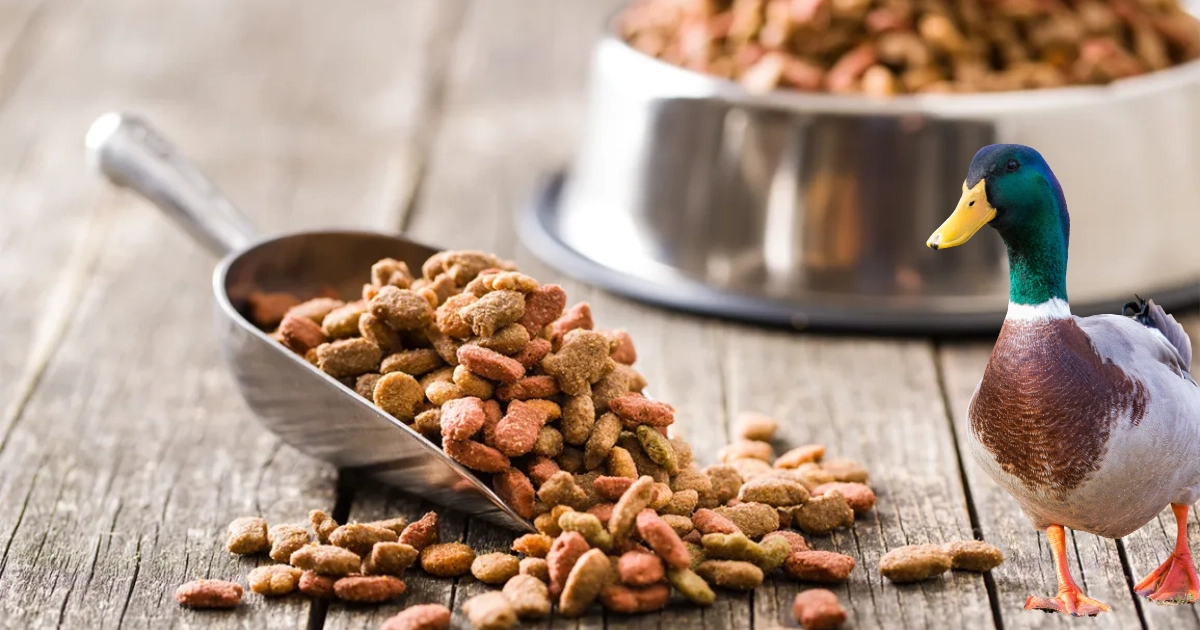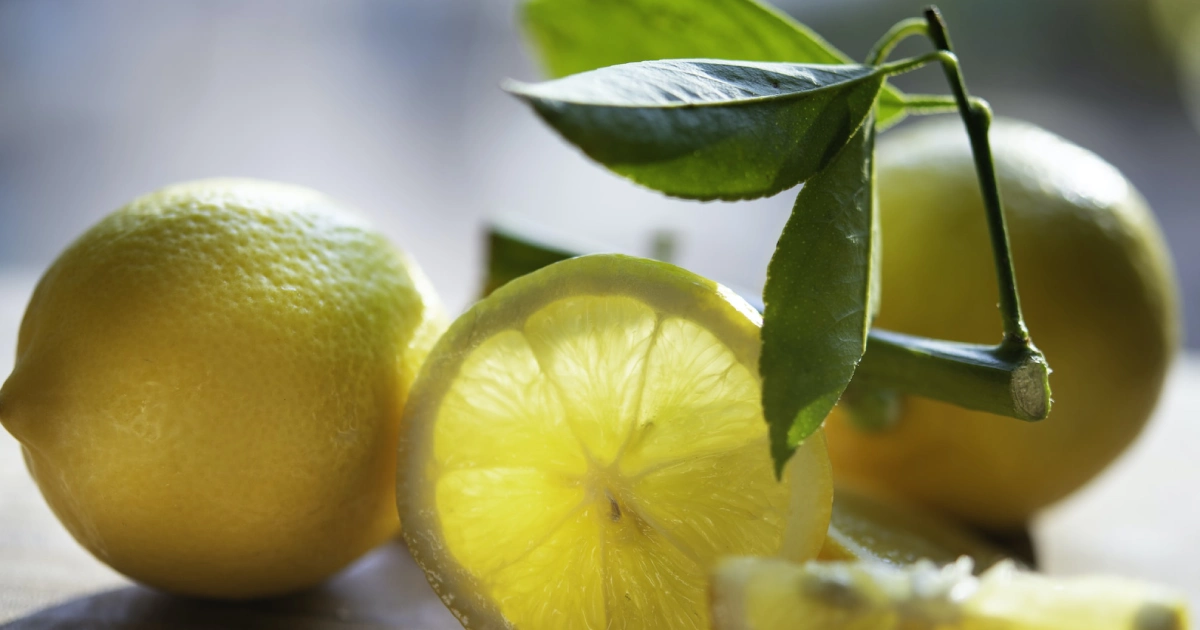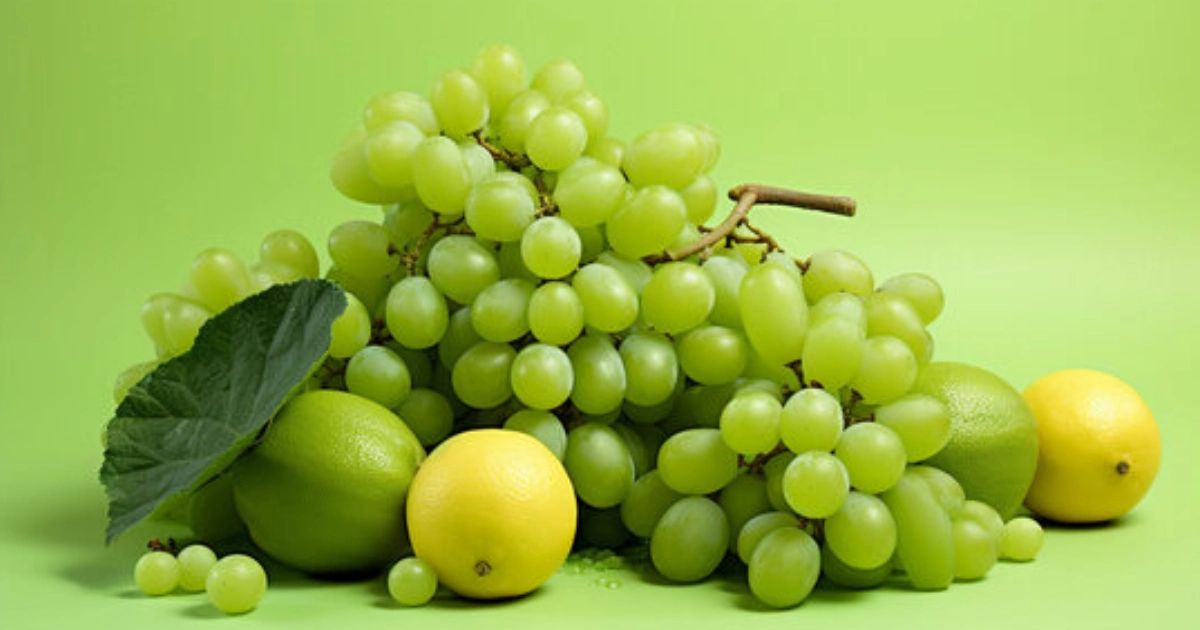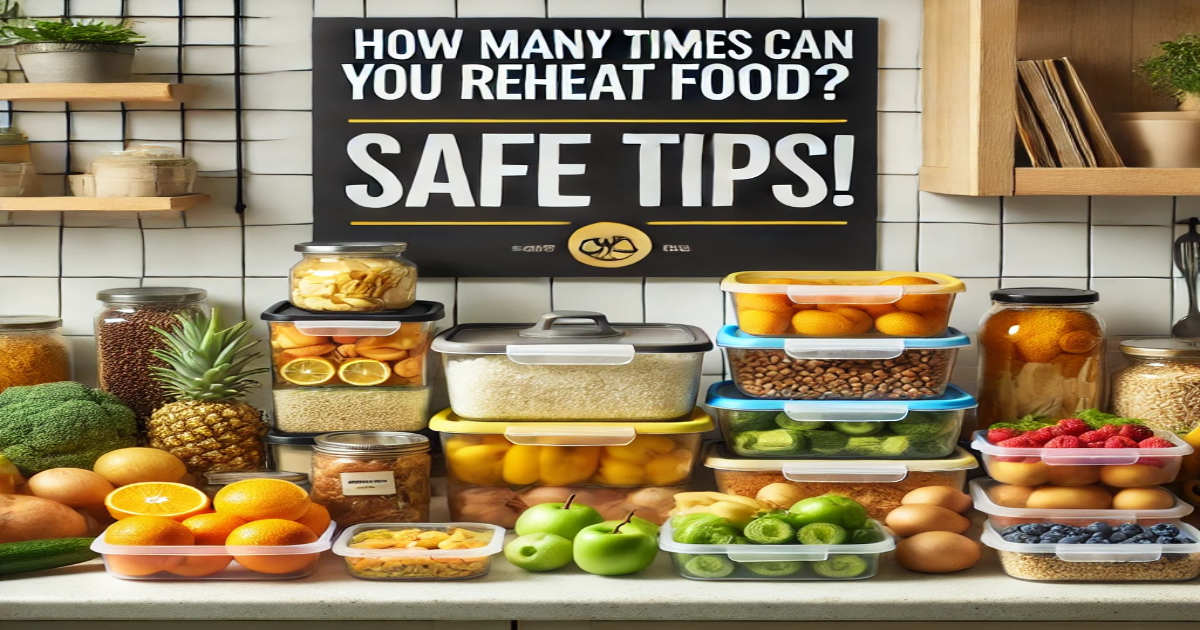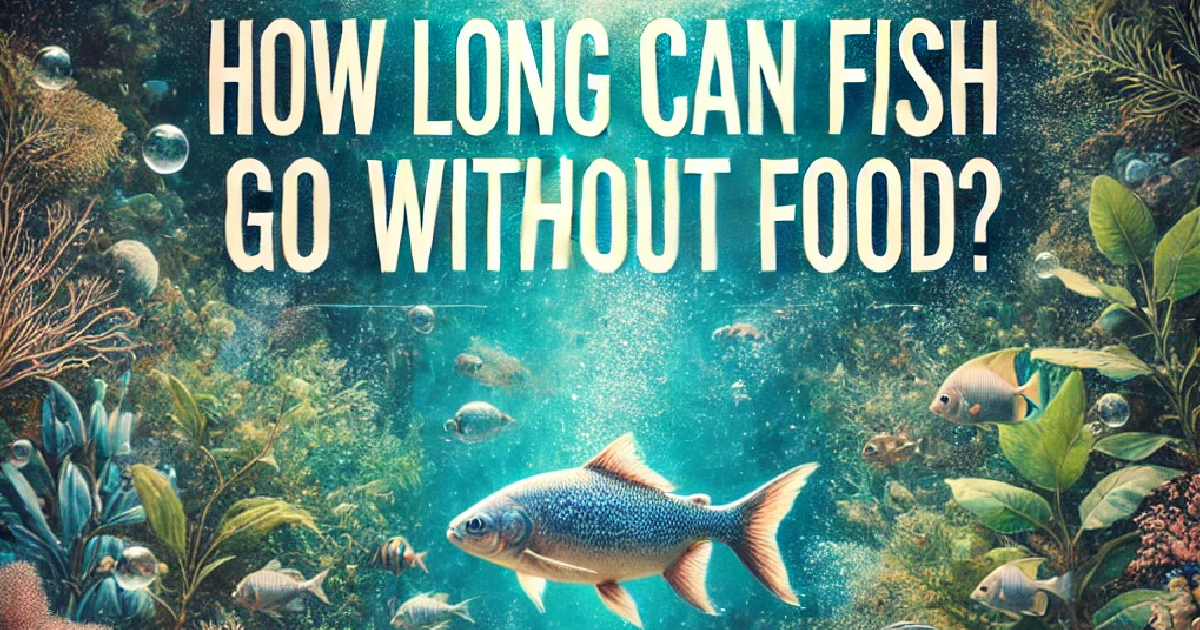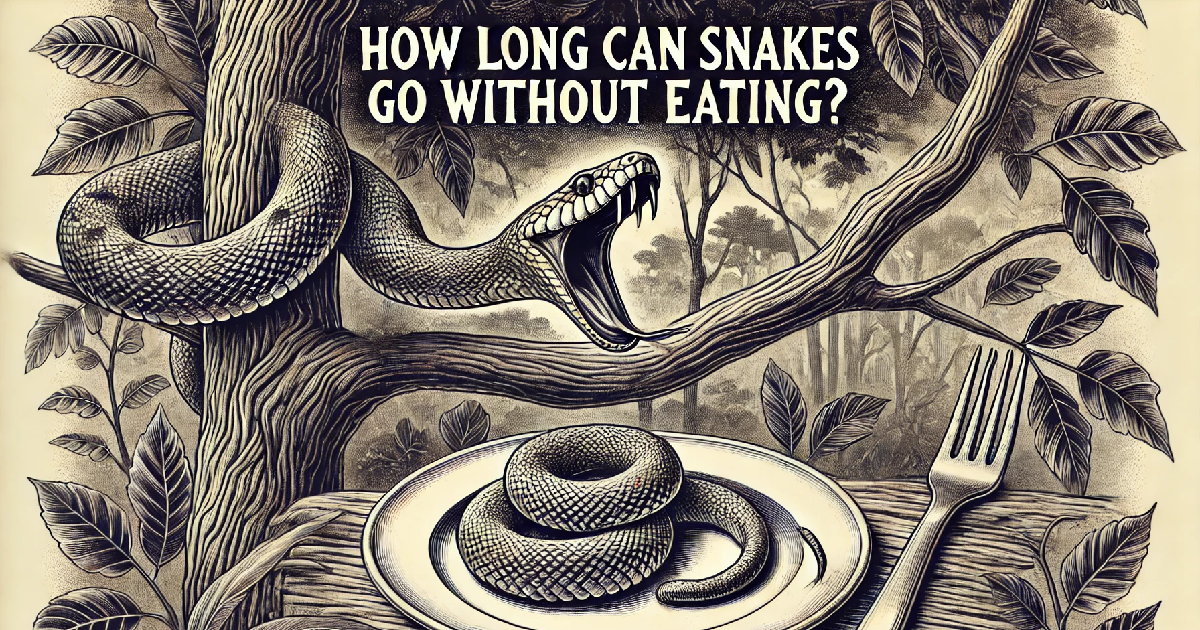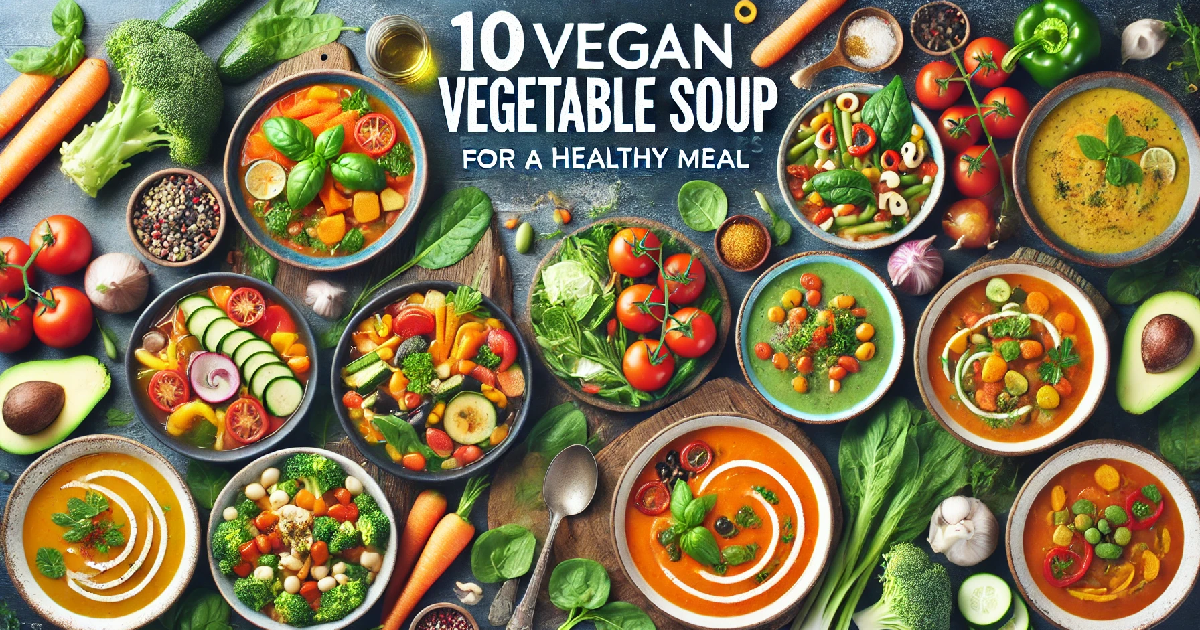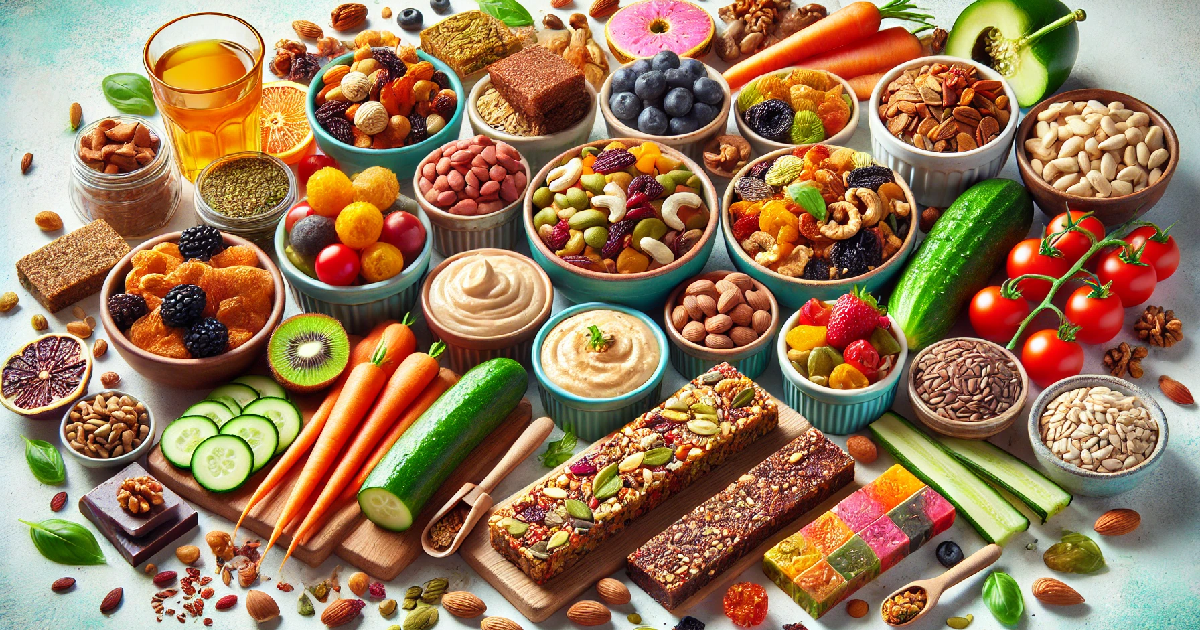Have you ever opened the fridge door and noticed a strange taste or odour? Or have you bit into your food only for it to suddenly taste like chemicals? If so, don’t worry; this is surprisingly common – we’ve all been there! In this blog post, we’ll explore why the food in our fridges can sometimes take on a bizarre chemical flavour. We’ll consider potential reasons alongside intelligent solutions that are easy to implement – so that you can confidently store your food.
What Is The Cause Of Chemical-Tasting Food In Your Fridge?
We’ve all experienced the dreaded chemical taste in food that’s been sitting in the fridge for too long. But what causes it? There are a few culprits that could be to blame. One of the most common reasons is the breakdown of plastic packaging, mainly PVC. As the plastic deteriorates, it can release chemicals that can migrate into your food, resulting in an unpleasant taste. Another possible cause is the breakdown of the food itself. When fruits and vegetables spoil, they release gases that react with the air in the fridge, creating strong odours and, sometimes, off flavours. Whatever the cause, it’s important to stay vigilant and regularly clean your fridge to prevent chemical-tasting food from spoiling your appetite.
Causes Of Chemical Odours In Your Refrigerator
Have you ever opened your refrigerator and been hit with an unpleasant chemical odour? It’s not only unpleasant, but it can also be concerning. The good news is that there are several common causes for these odours, and you can take steps to eliminate them. One of the most common culprits is spoiled or expired food. If something has gone wrong, it can release chemicals that create a foul smell.
Another possible cause is a dirty refrigerator. If you last cleaned your fridge a while ago, it’s likely that spills and other messes have accumulated and are causing the odour. Lastly, check if any forgotten foods are hiding in the back of your fridge. It’s easy to remember items that get pushed to the back, which can quickly become a source of unpleasant smells. By identifying and addressing the source of the chemical odour, you can enjoy a fresh and clean-smelling fridge once again.
How To Properly Store Food To Reduce Chemical Taste
Have you ever eaten food and been overwhelmed by a chemical taste? It could be more pleasant and can quickly ruin your meal. One reason for this strange taste could be improper food storage. Certain substances like plastic containers, aluminium foil, and cling wrap can leach chemicals into the food, altering its flavour. To avoid this, storing food properly is essential. Glass containers with airtight lids, stainless steel, and parchment paper are great alternatives to plastic and foil. Additionally, storing acidic foods in non-reactive materials like glass or ceramic can prevent the transfer of flavours. Being mindful of the materials used during food storage ensures a more enjoyable and chemical-free dining experience.
Why Is My Fridge Making Food Taste Weird?
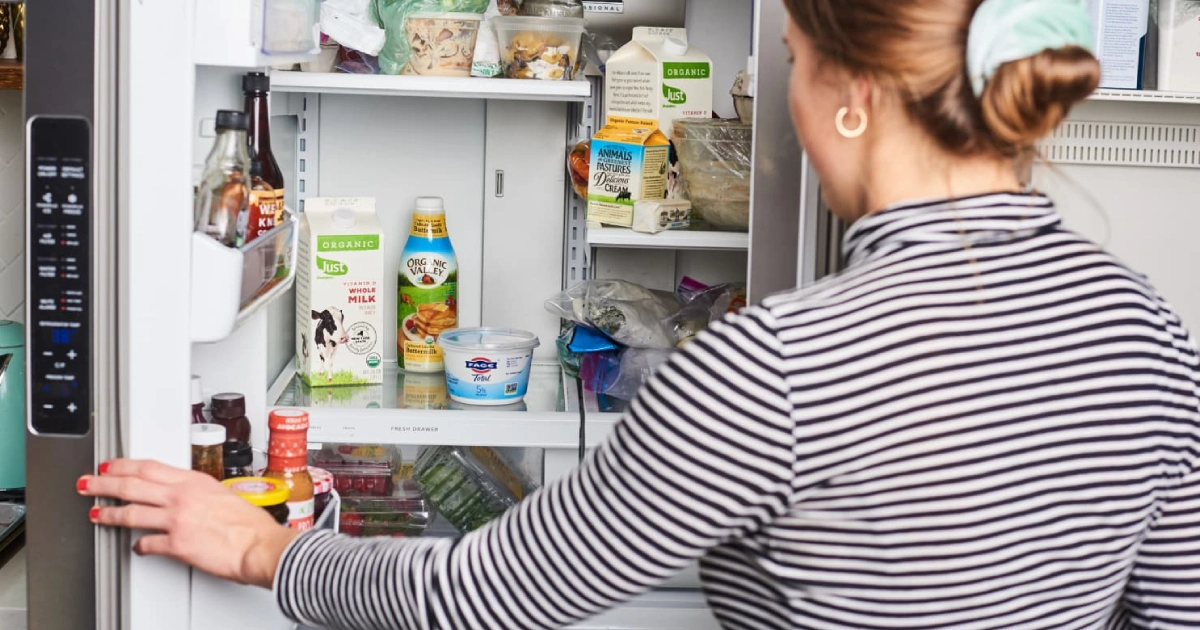
Have you noticed that your food needs to taste better? It could be due to an issue with your fridge. One possibility is that your fridge is leaking freon, a chemical used as a refrigerant. When freon leaks from your fridge into the food compartment, it can alter the taste of your food. Additionally, freon can be harmful to your health if ingested. It’s important to have a professional inspect your fridge to ensure that everything is functioning properly and to identify the source of the issue. Don’t risk your health or the taste of your food – contact a professional to address the problem.
Why Does Freezer Burn Taste Like Chemicals?
Have you ever eaten your favourite frozen food only to be met with a strange chemical taste? You may have encountered a freezer burn. Freezer burn occurs when the moisture inside frozen food evaporates, leaving it dry and exposed to the air. As a result, the food’s flavours can become compromised, leading to the telltale taste of chemicals. But why does this happen? One possible explanation is that the bad chemical smell in the fridge transfers onto the frozen food, altering its taste. To avoid freezer burn and the unsavoury taste that comes with it, store your frozen food in an airtight container and consume it within the recommended timeframe.
Why Does The Ice In My Freezer Taste Like Chemicals?
Have you ever noticed a strange, almost chemical-like taste in the ice from your freezer? It certainly differs from the taste you expect from a refreshing glass of water or your favourite beverage. But fear not, this is a common issue for many, and fortunately, there are some simple explanations and solutions to the problem. One explanation for the chemical taste is the buildup of minerals in your freezer’s ice maker. As water freezes, it pushes impurities, such as minerals, to the centre of the ice, resulting in a strange taste.
Another explanation could be a dirty or old filter in your freezer, which can cause the ice to have a musty, unpleasant smell. Regularly cleaning your ice maker and replacing filters as needed ensures the ice from your freezer tastes refreshing and chemical-free. Check for any leaks in your refrigerator’s freon system to restore the quality of your ice and prevent any potential health hazards.
Symptoms Of a Gas Leak In Fridge
If you’re noticing an unusual smell around your refrigerator, mainly that it smells like gas, paying attention to it is vital. A gas leak in one’s fridge can have severe consequences and must address immediately. Natural gas or rotten egg odours, hissing noises, or an accumulation of white dust close to the refrigerator are all typical indications of a gas leak. Additionally, you may experience headaches, dizziness, or nausea, and gas-powered appliances may not function as efficiently as they should. If you think there may be a gas leak in your refrigerator, don’t delay contacting your gas provider. Not only will they be able to investigate the issue, but they can also fix the problem and help prevent any potential harm.
The Fridge Smells Like Fish, But No Fish
Have you ever opened your fridge and been hit with a strong fishy odour that made your stomach turn? It could be a more pleasant experience, especially if you have no fish in the fridge. The strange smell might be coming from your freezer instead. If you have stored fish or any other seafood product in your freezer before, the smell could have penetrated the appliance’s walls, causing the fishy scent to linger long after removing the offending food. It’s important to properly clean and deodorize your freezer to get rid of any residual smells and prevent them from spreading to your fridge.
My Refrigerator Smells Like a Dead Animal
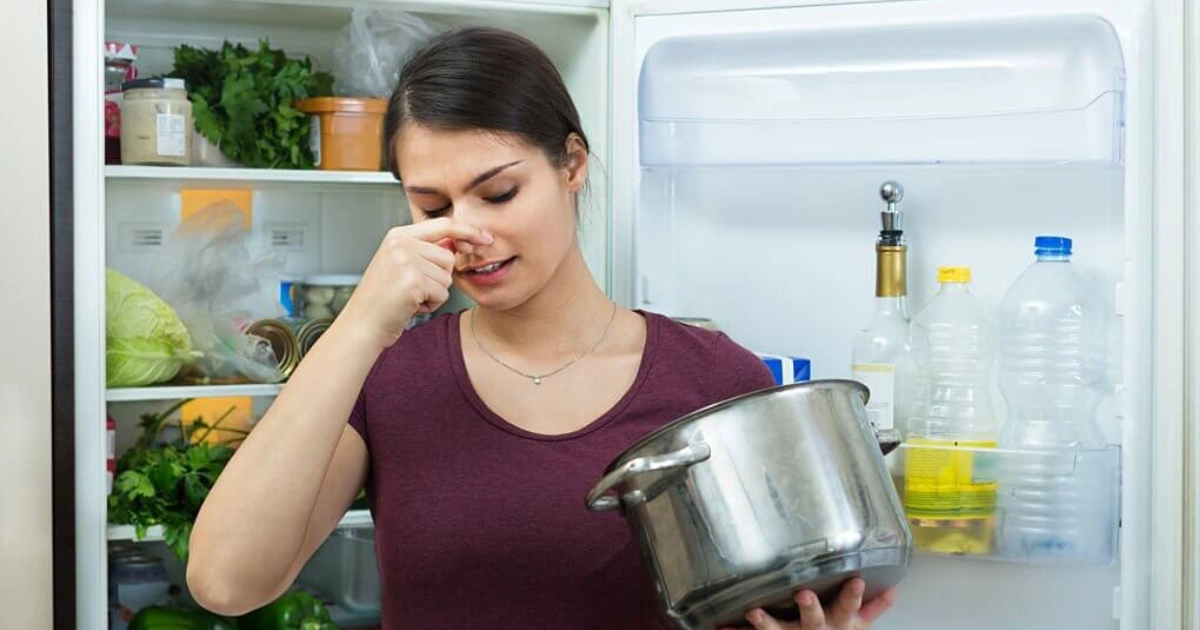
If you’re wondering why your refrigerator smells like death, it could be due to a freon leak. Freon is a gas used to cool your fridge, but if it leaks, it can mix with other substances in your fridge and create a potent odour. While the smell may resemble that of a dead animal, it’s important to rule out any actual decaying matter in your fridge before assuming it’s a freon leak. If you suspect a leak, it’s best to call a professional to handle it, as freon can be harmful if inhaled.
What Does Freon Smell Like In a Refrigerator?
Have you ever noticed a strange chemical smell coming from your refrigerator? This odour often attributes to a gas called freon, commonly used as a refrigerant in cooling systems. Though freon is odourless, it can emit a distinct smell when it leaks from a refrigerator or cooling system: the odour or chloroform. If you detect this smell in your fridge, it’s essential to address the issue as soon as possible, as freon leaks can pose health risks and damage the environment. Be sure to contact a professional for repair or disposal options.
Tips For Preventing Food From Spoiling Too Quickly
We’ve all been there – stocking up on fresh produce and meats only to find them wilted and spoiled before we can use them. You can use several tips and tricks to prevent food from spoiling too quickly. For starters, store produce in the crisper drawer of your fridge and keep the temperature set at or below 40°F. You should also separate your fruits and vegetables as they each emit different gases that can cause spoilage. Regarding meats, follow proper storage guidelines and don’t let them sit at room temperature for too long. Following these simple steps can save money and reduce food waste while keeping your meals fresh and delicious.
Ways To Minimize The Risk Of Cross-Contamination And Food Poisoning
Food poisoning can be a nightmare that nobody wants to experience. Unfortunately, it is a real possibility in any kitchen. However, there are ways to minimize the risk of cross-contamination and spreading harmful bacteria. The first step is constantly washing your hands thoroughly before handling food. Before using them for something else, you should wash any surfaces and utensils that come into contact with raw meat, fish, or poultry. Another tip is to separate different types of foods in your fridge to prevent juices from one item from leaking onto another. You may dramatically lower your chances of getting sick from food by considering these precautions.
How To Get Rid Of Freezer Smell
A freezer smell can be a pesky problem that many of us face. There are many reasons why your freezer might start to emit an unpleasant odour, such as spoiled food, poor ventilation, or accumulated grime. But fear not – getting rid of a freezer smell is quite simple! First, unplug your appliance and empty out all of the contents. Then, combine equal parts vinegar and warm water and scrub down the interior with a sponge. Be sure to pay special attention to any crevices or tough spots. After thoroughly cleaning the interior, let it dry completely before plugging it back in and replacing your food. With these easy steps, you can eliminate freezer odour and ensure your frozen goods stay fresh and odour-free!
Advantages Of Using Organic And Natural Produce In The Kitchen
Organic and natural produce has increasingly become the go-to choice for many people. While it may be more expensive than conventional produce, it is chock full of benefits that outweigh the cost. For starters, organic and natural produce is free from harmful pesticides, fertilizers, and other chemicals that can cause harm to our bodies. Furthermore, organic produce is often fresher and more nutrient-dense, meaning it has more vitamins and minerals essential for a healthy lifestyle. Supporting natural and organic farming methods also helps to promote sustainable agriculture and environmental protection. Using organic and natural produce in the kitchen can create wholesome and delicious meals that contribute to a happier and healthier life.
Conclusion
Taking proactive steps to ensure that your food is stored properly and kept safe can help you avoid chemical-tasting food, cross-contamination, and potential health risks. Investing in quality storage containers is essential for preserving the freshness of your food for extended periods. Additionally, purchasing organic and natural produce whenever possible prevents exposure to artificial chemicals, which can lead to unpleasant tastes and smells. With some planning and simple kitchen hacks, you can quickly reduce the chances of eating spoiled or contaminated food. Eating healthy food doesn’t have to be complicated if you know how to take the proper precautions when storing it in your refrigerator.






